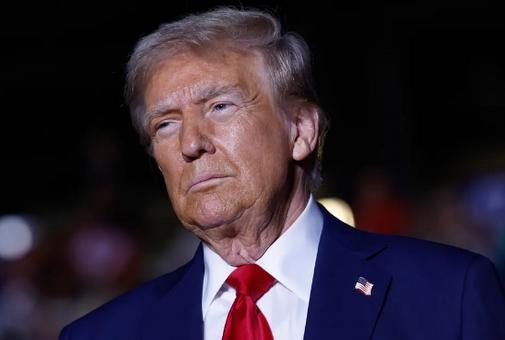

(下边有中文翻译请继续看到底。 谢谢。)
Less than two weeks before taking office, President-elect Donald Trump’s recent press conference has ignited a firestorm of reactions across the globe. With controversial statements on sensitive international issues, the event has offered a glimpse into what many believe could be the policy framework of his foreign policy. As the world grapples with the implications of his remarks, the response from international leaders, analysts, and citizens has been a mix of concern, alarm, and cautious optimism. This article delves into the global reactions to Trump’s press conference and explores the potential geopolitical shifts during his presidency.
Polarizing Remarks and Global Alarm
Among the most contentious points raised during the press conference were Trump’s suggestions about reasserting U.S. control over the Panama Canal and pursuing economic or military action in Greenland. His rhetoric on these matters has drawn sharp rebukes from allied nations. Danish Prime Minister Mette Frederiksen categorically dismissed the idea of Greenland being for sale, emphasizing the sovereignty of the territory and the unity of Denmark’s kingdom. Similarly, Panama’s Foreign Minister Javier Martínez-Acha reaffirmed that the Panama Canal remains a symbol of national pride and will not be surrendered under any circumstances.
Trump’s proposal to rename the Gulf of Mexico as the Gulf of America further amplified tensions with neighboring Mexico and Canada. Mexican President Claudia Sheinbaum criticized the statement as undermining regional harmony and warned against escalating tariffs. Canadian officials, too, have expressed unease over Trump’s threats to levy economic penalties, describing them as a direct challenge to longstanding trade relations.
Middle East Volatility: Fueling Uncertainty
Trump’s harsh warning to Hamas—that “all hell will break loose” if hostages in Gaza are not released—has stoked fears of escalating conflict in the already volatile Middle East. While his tough stance has garnered some support from pro-Israel groups, others view it as exacerbating an already dire humanitarian crisis. His comments about a potential ceasefire negotiation through Qatar have sparked mixed reactions, with some analysts questioning the feasibility of his demands within the tight timeline before his inauguration.
Strained Alliances in Europe
European allies were equally unsettled by Trump’s rhetoric. His insistence that NATO members allocate at least 5% of their GDP to defense spending was met with resistance from several member states already grappling with economic pressures. European leaders, wary of his transactional approach, fear that Trump’s policies may erode the unity and collective security of the NATO alliance. French and German officials have openly criticized his comments, calling for a more measured and collaborative approach.
The Russia-Ukraine Quandary
Trump’s apparent empathy towards Russia’s opposition to Ukraine’s NATO membership has raised eyebrows in Kyiv and among Western allies. While he expressed a desire to mediate the Russia-Ukraine conflict swiftly, his ambiguous stance on Russian aggression has fueled skepticism. Ukrainian President Volodymyr Zelenskyy urged the international community to remain steadfast in their support for Ukraine’s sovereignty.
Asian Power Dynamics: China and Beyond
In Asia, Trump’s sharp criticism of China’s trade practices and his promise to impose new tariffs were seen as a prelude to heightened tensions. Chinese state media condemned his remarks as a continuation of an adversarial policy that could disrupt global supply chains. Meanwhile, in Southeast Asia, Trump’s lack of focus on the region’s geopolitical importance was noted with disappointment, signaling potential challenges in fostering stronger U.S.-ASEAN relations.
Domestic and Public Backlash
Within the United States, Trump’s press conference has been met with divided opinions. While his core supporters applaud his assertiveness and commitment to “America First,” many Americans, including political moderates and progressives, view his remarks as isolating and damaging to the country’s global standing. Political analysts have raised concerns about the potential economic fallout of his proposed trade tariffs and the diplomatic consequences of his confrontational tone.
Geopolitical Projections: A Troubled Path Ahead?
Based on his press conference, Trump’s presidency may usher in an era of unilateralism and transactional diplomacy. While his bold assertions aim to project strength, they risk alienating allies, destabilizing regions, and undermining multilateral institutions. The possibility of a more fragmented world order looms large, with increased competition and diminished cooperation on global challenges such as climate change, migration, and security.
Recommendations for a Balanced Approach
To mitigate these concerns, it is imperative for the incoming administration to adopt a more nuanced and inclusive approach. Strengthening alliances, respecting international agreements, and fostering dialogue rather than confrontation will be key to navigating the complexities of modern geopolitics. While Trump’s ambition to “Make America Great Again” resonates with his base, achieving this goal requires a stable and cooperative global environment.
Conclusion
President-elect Donald Trump’s press conference has set the stage for a presidency marked by bold promises and contentious policies. As the world braces for his tenure, the reactions to his remarks underscore the importance of careful diplomacy and mutual respect in international relations. Whether Trump’s vision will lead to a stronger America or a more divided world remains to be seen, but the global community will undoubtedly be watching closely.
还有不到两周就要就职的候任总统唐纳德·特朗普最近召开的新闻发布会在全球范围内引发了激烈的反应。由于在敏感的国际问题上发表了有争议的言论,这一事件让人们得以一窥许多人认为可能是他外交政策的政策框架。当全世界都在努力应对他讲话的影响时,国际领导人、分析人士和公民的反应是担忧、警报和谨慎乐观的混合。本文深入研究了全球对特朗普新闻发布会的反应,并探讨了他担任总统期间潜在的地缘政治变化。
两极分化言论和全球警报
在新闻发布会上提出的最有争议的问题是特朗普关于重申美国对巴拿马运河的控制以及在格陵兰岛采取经济或军事行动的建议。他在这些问题上的言辞招致了盟国的强烈谴责。丹麦首相梅特·弗雷德里克森(Mette Frederiksen)断然驳斥了出售格陵兰岛的想法,强调该领土的主权和丹麦王国的统一。同样,巴拿马外交部长哈维尔Martínez-Acha重申,巴拿马运河仍然是国家骄傲的象征,在任何情况下都不会投降。
特朗普提议将墨西哥湾更名为美国湾,这进一步加剧了美国与邻国墨西哥和加拿大的紧张关系。墨西哥总统Claudia Sheinbaum批评该声明破坏了地区和谐,并警告不要升级关税。加拿大官员也对特朗普征收经济惩罚的威胁表示不安,称这是对长期贸易关系的直接挑战。
中东动荡:加剧不确定性
特朗普对哈马斯的严厉警告——如果加沙的人质不被释放,“地狱就会爆发”——引发了人们对已经动荡不安的中东地区冲突升级的担忧。虽然他的强硬立场赢得了一些亲以色列组织的支持,但其他人认为这加剧了本已严重的人道主义危机。他关于可能通过卡塔尔进行停火谈判的言论引发了不同的反应,一些分析人士质疑他在就职典礼前紧迫的时间内提出要求的可行性。
紧张的欧洲联盟
欧洲盟友同样对特朗普的言论感到不安。他坚持要求北约成员国至少将国内生产总值的5%用于国防开支,这遭到了几个已经面临经济压力的成员国的抵制。欧洲领导人对特朗普的交易方式持谨慎态度,担心特朗普的政策可能会侵蚀北约联盟的团结和集体安全。法国和德国官员公开批评他的言论,呼吁采取更加慎重和合作的方式。
俄罗斯和乌克兰的困境
特朗普显然同情俄罗斯反对乌克兰加入北约的立场,这让基辅和西方盟国感到惊讶。虽然他表达了迅速调解俄乌冲突的愿望,但他对俄罗斯侵略的模棱两可立场引发了怀疑。乌克兰总统泽伦斯基敦促国际社会继续坚定地支持乌克兰的主权。
亚洲权力动态:中国及其他地区
在亚洲,特朗普对中国贸易行为的尖锐批评和他征收新关税的承诺被视为紧张局势加剧的前奏。中国官方媒体谴责他的言论是敌对政策的延续,可能会扰乱全球供应链。与此同时,在东南亚,特朗普缺乏对该地区地缘政治重要性的关注令人失望,这表明在加强美国与东盟关系方面存在潜在挑战。
国内和公众的反对
在美国国内,特朗普的新闻发布会引发了意见分歧。虽然他的核心支持者称赞他的自信和对“美国优先”的承诺,但许多美国人,包括政治温和派和进步派,认为他的言论是孤立的,损害了美国的全球地位。政治分析人士对特朗普提议的贸易关税可能带来的经济影响,以及他的对抗语气带来的外交后果表示担忧。
地缘政治预测:一条坎坷的道路?
从特朗普的新闻发布会来看,他的总统任期可能会开启一个单边主义和交易外交的时代。虽然他的大胆主张旨在展示实力,但它们可能会疏远盟友,破坏地区稳定,并破坏多边机构。随着在气候变化、移民和安全等全球挑战上的竞争加剧和合作减少,世界秩序更加碎片化的可能性越来越大。
关于平衡方法的建议
为了减轻这些担忧,即将上任的美国政府必须采取一种更加细致和包容的方式。加强联盟,尊重国际协议,促进对话而不是对抗,将是驾驭现代地缘政治复杂性的关键。虽然特朗普“让美国再次伟大”的雄心与他的选民产生了共鸣,但要实现这一目标,需要一个稳定、合作的全球环境。
结论
当选总统唐纳德·特朗普的新闻发布会为他的总统任期奠定了基础,其特点是大胆的承诺和有争议的政策。在世界为他的任期做准备之际,对他讲话的反应凸显了在国际关系中谨慎外交和相互尊重的重要性。特朗普的愿景究竟会带来一个更强大的美国,还是一个更加分裂的世界,还有待观察,但国际社会无疑将密切关注。
( 注意: 本文是用AI翻译的,或有误差。请以原版英文为准。谢谢。)
